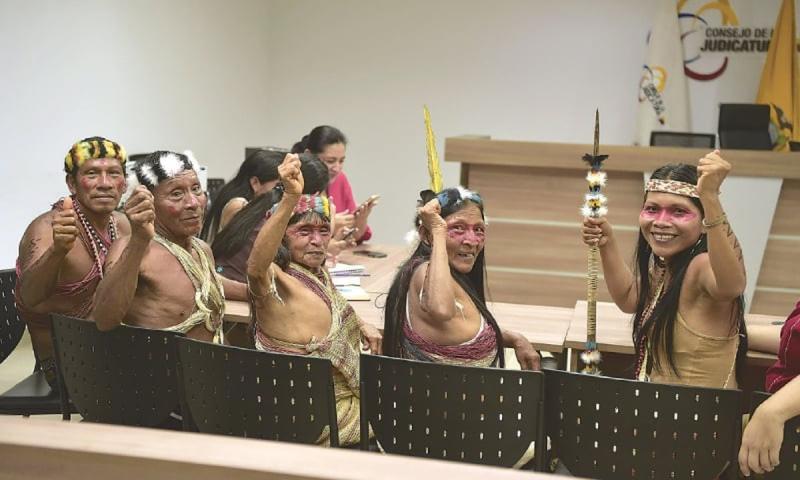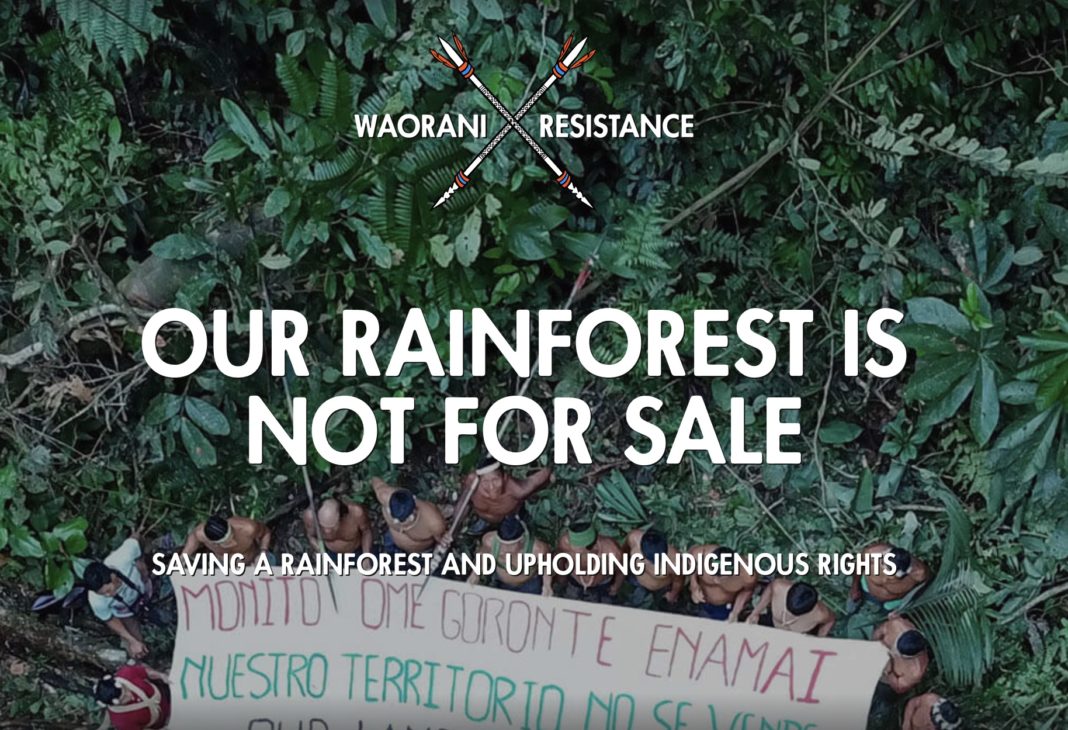Amazon Tribe Wins Lawsuit, Blocks Big Oil’s Bid To Destroy Millions Of Acres Of Rainforest


In a landmark victory, the Waorani people of Pastaza, an indigenous tribe from the Ecuadorian Amazon, successfully protected half a million acres of their ancestral territory in the Amazon rainforest from being mined for oil drilling by Big Oil companies.
A three-judge panel of the Pastaza Provincial Court indefinitely suspended the auctioning of Waorani lands to oil companies by trashing the consultation process the Ecuadorian government had undertaken with the tribe in 2012.
After setting an invaluable legal precedent for other indigenous nations across the Ecuadorian Amazon by accepting a Waorani bid for court protection to stop an oil bidding process, the court also halted the contemplated auctioning of 16 oil blocks that cover over 7 million acres of indigenous territory.
The Waorani people are one day away from saving half-a-million acres of forest from oil drilling. Watch the video and send a message to Ecuador’s government: protect indigenous rights & the Amazon. https:// waoresist.amazonfrontlines.org/action/ @ AFrontlines # WeLoveTheEarth # WaoraniResistance
“The government tried to sell our lands to the oil companies without our permission. Our rainforest is our life. We decide what happens in our lands. We will never sell our rainforest to the oil companies. Today, the courts recognized that the Waorani people, and all indigenous peoples have rights over our territories that must be respected. The government’s interests in oil is not more valuable than our rights, our forests, our lives.”
Oswando Nenquimo, spokesperson for the Waorani of Pastaza, added:
“Today we have protected our forest from oil drilling; we have protected our water from contamination; we have protected our children from sickness. This is a legal precedent for indigenous rights. But the fight is far from over. The government will appeal because they still want the oil beneath our land. Indigenous Nations across the Amazon and the world must band together to protect our homes.”

The lands are protected under Ecuador’s constitution that establishes the “inalienable, unseizable and indivisible” rights of indigenous people “to maintain possession of their ancestral lands and obtain their free adjudication.” The constitution also enshrines the need for prior consultation on any plans to exploit the underground resources, given the probable environmental and cultural impacts on tribal communities.
The state claims it reached an agreement with the Waorani over oil exploration in 2012, but the tribe alleges the agreement was based on fraudulent practices and claims that favoured oil companies and profits over the interests of people living on valuable land. The judges ordered the Ecuador government to conduct a new consultation, applying standards set by the Inter-American Court of Human Rights.
Mitch Anderson, executive director of Amazon Frontlines, said:
“This is a major precedent for indigenous rights across the Amazon. Today, the court has recognized a pattern of deceit, bad-faith and manipulative tactics in the Ecuadorian Government’s attempt to earmark the Waorani people’s lands for oil extraction.This is a huge step forward in the battle to ensure indigenous people’s rights over their lands are respected. Guaranteeing indigenous peoples’ rights to decide over their future and to say ‘No’ to destructive extractive projects is key to protecting the Amazon rainforest and halting climate change.”





Great decision and super protection.
Too bad we can't get the U.S. Courts to follow our treaties, eh?
So glad to hear news like this.
You're asking for miracles.
We can still work toward that goal. The indigenous cultures have gotten the short end of the stick for far too long because political power is seldom in their favor, but that needs to change.
In many instances we never even got the short end, we received no stick at all.
The passage of HR 375 (Carcieri fix) by the house is a good start. Now it needs to be passed by all involved.
OK, LUV it. 28 cosponsors (23 D's and 5 R's) with Cali giving 8 co-sponsors - has gone to both subcommittees (Natural Resources/Indigenous) and been discharged with minor amendment/mark-up on 5/1/19. Lookin' good.
Tester attempted to pass a fix in 2015, but it died in committee. This one looks to have a better chance per the last vote of 27 - 9.
Too bad we can't get the U.S. Courts to follow our treaties, eh?
You're asking for miracles.
I would say that both statements are correct, sadly.
Wow what amazingly good news. A win/ win. I wish our country would take a page out of this book.